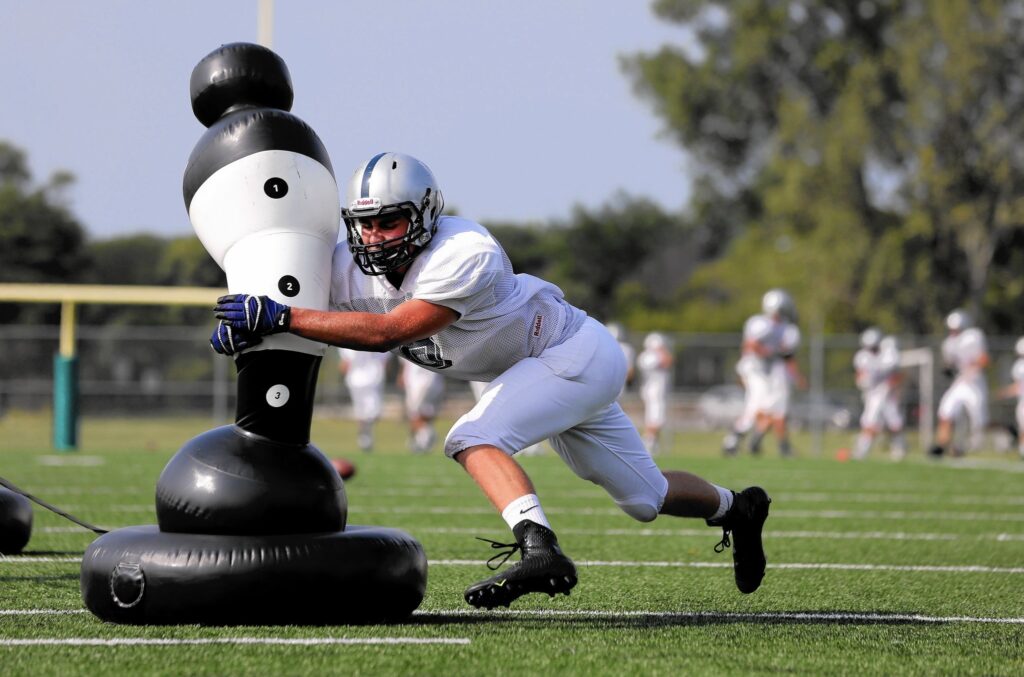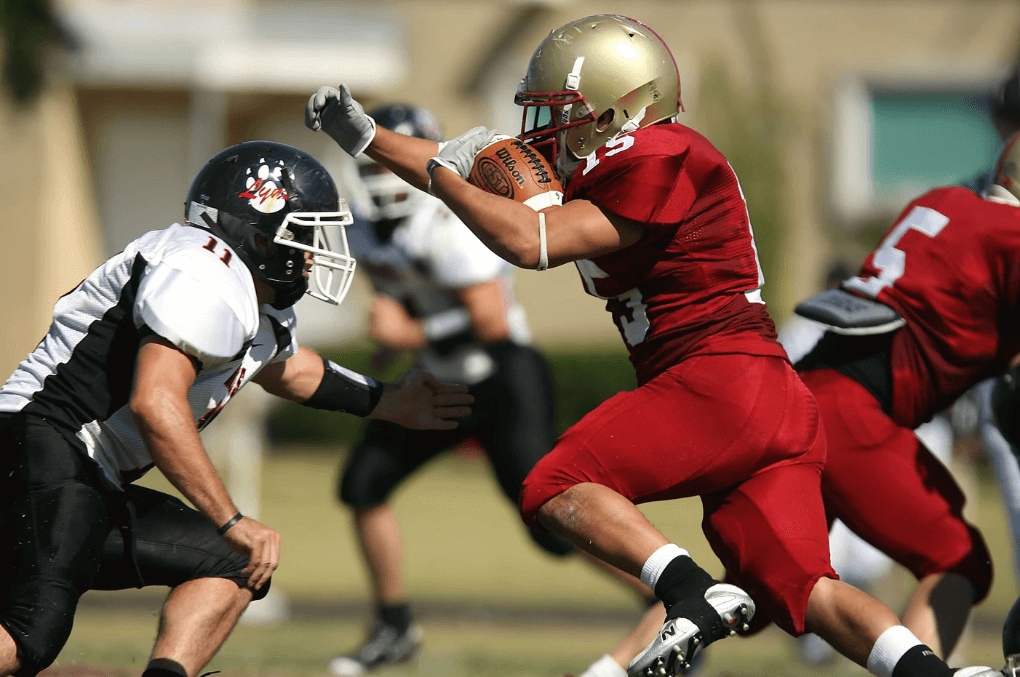Tackle football is a popular sport among children and adolescents to help teach them the fundamentals of this traditional sport. Many parents worry about the risk of concussions from this sport. But with just 3 to 5-percent of youth suffering from concussions, some believe that the frequency of such injuries has been overestimated and the long-term effects of tackling are conflicting. So, let’s learn a little more about tackle football, the benefits of this sport, and modified versions of this sport that could benefit everyone.
About tackle football
Tackle football is a sport in which the ball is downed by tackling the person carrying the ball. It’s the traditional form of American football and is popular among youth since it can prepare them to play football in high school and college.
Benefits of tackle football
Although some may view tackle football as dangerous, it can actually be a beneficial activity for youth in the long-term. Here are some of the benefits of tackle football for youth.
- Developing proper tackle techniques: Tackle football can teach a child how to properly make contact with others, which can reduce injury in the long-term.
- Strengthens teamwork skills: Tackle football can help tighten the bond between teammates as players will be working to protect each other from being tackled.
- Teaches perseverance: Since players in tackle football will fall down a lot and have to continue playing, it can teach kids how to be more resilient and persevere through obstacles in life.
- Improves social skills: Sports like tackle football can introduce youth to new social groups and also teach them how to respect authority through their interaction with coaches.
Besides these benefits, another reason youth should be allowed to play tackle football is that the coaching equipments for this sport are improving every day. One example is a helmet that has been modeled off of NFL helmets and are designed to better suit the anatomies of youth. Although this type of equipment is expensive now, it’s a step in the right direction towards youth safety in football.
Safer alternatives to tackle football
If you still feel like you’re not sure about whether you want to send your child to tackle football, perhaps a modified version of the sport may be right for you. These modified versions of tackle football can provide your child with the benefits of tackle football with less safety risks.
- TackleBar football: This modified form of tackle football preserves the traditions of football with traditional equipment, but instead has players wear a TackleBar harness with that holds two bars across the lower back. In this form of tackle football, the defender must track and engage the other player by practicing proper form tackling technique while wrapping the ball carrier and tearing a bar from the harness while both players stay on their feet.
- Rookie Tackle®: This modified form of tackle football is a bridge between flag football and tackle football that uses a smaller field, eliminates special teams, and allows coaches on the field, among other things to help teach youth the fundamentals of tackle football so they can be better prepared when graduating to tackle football later in life.
- Flex Football: This form uses limited contact and no head or shoulder contact and no tackling. Kids can play football and become acquainted with all other aspects of the game, without the risk of head injuries. Players make use of hand-only blocking, while still getting to experience the mechanics of the game.
Tackle football is a sport that can be beneficial to the growth and development of youth in many ways. However, because of the safety risks, many parents may be worried to sign their child up for this sport. However, with the improvements in equipment, more emphasis being placed on tackling technique, along with modified forms of the sport, tackle football is becoming safer for children to participate in so they can reap the benefits of this traditional sport and learn skills they can use both on and off the field for life.




